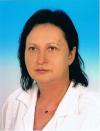Keywords:
lifelong education
lifelong learning
adult education
continuing professional education
non-school forms of adult learning. |
Abstract: the article reviews the organization of lifelong adult education in the Republic of Poland. In modern Poland, adults can study at primary and secondary schools for adults, gymnasiums, post-lyceum schools, higher education institutions, centers for lifelong learning, practical training and professional development centers. Extracurricular forms of lifelong learning imply: postgraduate education, professional qualification courses, professional skills courses, general competences courses, improving theoretical knowledge of workers who are under age. The author pays particular attention to the system of continuing professional education of adults and working youth.
The paper describes the specific features of tasks, functions and work areas of various centers (center for continuing education, agricultural center for continuing education, hands-on learning center and employment center), as well as professional organizations and associations: Professional Excellence Union, Society for the Popularization of Culture and Science, Scientific Management Association, the Union of Polish Craft, etc. The author also specifies the different types of professional development courses.
The system of adult education in modern Poland is social and public, variable and flexible. It considers diverse needs of the adult population to continue education (secondary education, employment, professional development and retraining, etc.) The information provided in the article may be useful for specialists in the field of lifelong education, vocational training and comparative pedagogy.
|
[1] Okoń W. (1998), Nowy słownik pedagogiczny, Warszawa: Żak
[2] Osiecka-Chojnacka J. (2003), Kształcenie ustawiczne i kształcenie dorosłych w Polsce, Warszawa: Kancelaria Sejmu – Biuro Studiów i Ekspertyz
[3] Rozporządzenie Ministra Edukacji Narodowej z dnia 11 stycznia 2012 r. w sprawie kształcenia ustawicznego w formach pozaszkolnych (Dziennik Ustaw Rzeczypospolitej Polskiej, Warszawa, dnia 17 lutego 2012 r. poz. 186)
[4] Bakalarz-Kowalska B. (2012), Uniwersytety trzeciego wieku – instytucjami wspierającymi potrzeby edukacyjne ludzi starszych, w: B. Kałdon, I. Kurlak (red.), Wybrane zagadnienia problematyki pomocy i wsparcia w rozwiązywaniu problemów ludzi w różnym wieku. Praca zbiorowa, Ostrowiec Świętokrzyski-Warszawa: Stowarzyszenie "Nauka, Edukacja, Rozwój", p. 44-62.












